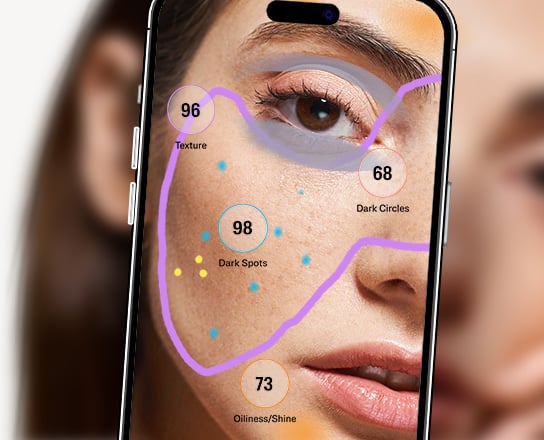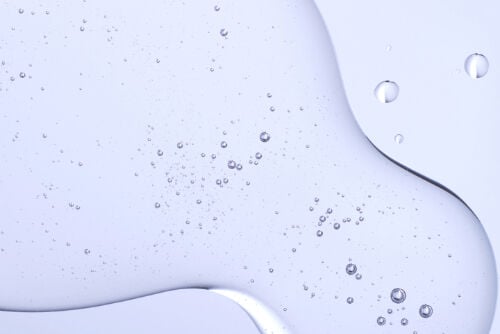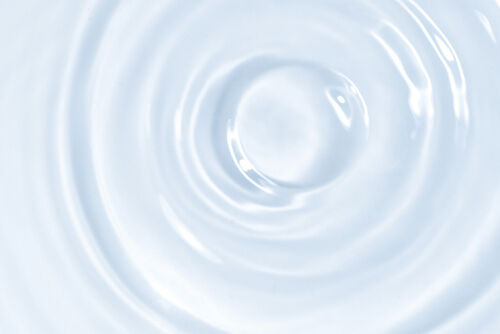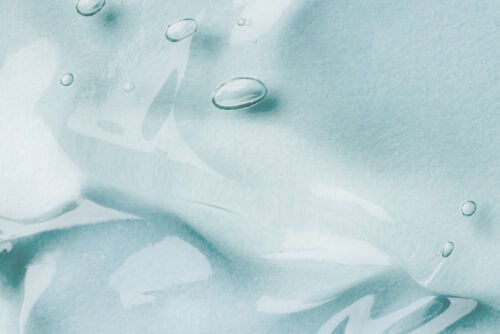Hydrating Foaming Cream Cleanser
%20HFCC%2016oz%20-%20Front%20(1).png?sw=900&sh=900&sm=fit&q=85)
Hydrating Foaming Cream Cleanser
Skin type: Normal to dry
This nourishing cream-to-foam face wash cleanses without drying skin's barrier and is clinically proven to remove pore-clogging dirt, oil and makeup. Our foaming cream cleanser maintains skin's natural protective barrier and pH to leave skin feeling hydrated and soothed.
- Nourishing formula cleanses without drying the skin barrier
- Clinically proven to effectively remove dirt, oil, & makeup
- Leaves skin feeling hydrated after cleansing with soothing prebiotic aloe
- Formulated with a dermatologist backed blend of Vitamin B3, Vitamin B5, and hydrating Glycerin
- 98% of consumers said the product gently cleanses skin
- Clinically tested on sensitive skin
How To Use
Apply a small amount onto wet skin and rub gently. Rinse. After cleansing, quickly follow with a face serum, and then a facial moisturizer while skin is still damp to draw water in the skin and lock it in for long lasting hydration.


FEATURES
This nourishing cream-to-foam cleanser cleanses without drying skin's barrier and is clinically proven to effectively remove dirt, oil, & makeup. Leaves skin feeling hydrated after cleansing with soothing prebiotic aloe plus a dermatologist backed blend of vitamin B3, vitamin B5, and hydrating Glycerin. It maintains skin's natural protective barrier and pH to leave skin feeling hydrated and soothed.
THE ROUTINE
ALL INGREDIENTS
Water, Sodium Cocoyl Isethionate, Glycerin, Glycol Distearate, Sodium Cocoyl Glutamate, Cocamidopropyl Betaine, Sodium Lauroyl Sarcosinate, Cetearyl Alcohol, Phenoxyethanol, Acrylates/C10-30 Alkyl Acrylate Crosspolymer, Arginine, Propylene Glycol, Sodium Chloride, Xanthan Gum, Ethylhexylglycerin, Niacinamide, Panthenol, Aloe Barbadensis Leaf Juice Powder, Pantolactone, Citric Acid

Find out more about our ingredients

Find your own routine with our new AI Skin Analysis tool
FAQs
Cetaphil Hydrating Foaming Cream Cleanser is a gentle yet effective facial cleanser, which is clinically proven to effectively remove dirt, oil, and makeup without stripping the skin of its essential oils or leaving it tight or dry. To use Cetaphil Hydrating Foaming Cream Cleanser, follow these steps:
- Wet your face with lukewarm water.
- Dispense a small amount of the cleanser into your hands.
- Gently massage the cleanser in circular motions onto your face. Avoid the eye area.
- Rinse your face thoroughly with lukewarm water.
- Pat your face dry with a clean towel.
You can use this cleanser twice daily, in the morning and evening, as part of your daily skincare routine.
Cream cleansers are typically more moisturizing and nourishing than other types of cleansers, making them an ideal option for those with normal to dry or sensitive skin. However, a cream cleanser may not be the best choice for oily skin.
Oily skin is characterized by excess sebum production, which can lead to clogged pores and acne breakout, so if you have oily skin, it is recommended to use a foaming or gel-based cleanser, such as Cetaphil DermaControl Oil Removing Foam Wash, which is designed to effectively remove excess oil and unclog pores without over-drying the skin.
The main differences between a foaming cleanser and a hydrating creamy cleanser are their formulation and how they work to clean the skin.
Foaming cleansers, such as Cetaphil Gentle Foaming Cleanser typically contain surfactants, which create a lather when mixed with water. This lather helps to lift dirt, excess oil, makeup, and impurities from the skin, leaving it feeling clean and refreshed. Cetaphil Gentle Foaming Cleanser is a soap-free foaming cleanser, which contains glycerin as well as vitamins B5 and tocopherol (vitamin E), so that your skin won’t feel tight or dry.
Hydrating creamy cleansers such as Cetaphil Hydrating Foaming Cream Cleanser are formulated with moisturizing ingredients that help to hydrate and nourish the skin. They typically do not produce a lot of lather, while gently dissolving dirt, oil, and makeup from the skin without stripping away its natural oils. In addition, Cetaphil Hydrating Foaming Cream Cleanser is formulated with soothing prebiotic aloe, glycerin, and vitamins B3 (niacinamide) and B5 (panthenol) to help maintain the skin barrier and skin pH levels.
Choosing between a foaming cleanser and a hydrating or creamy cleanser will depend on your skin type and concerns. If you have oily or acne-prone skin, a foaming cleanser may work best for you, while those with dry or sensitive skin may prefer a hydrating creamy cleanser.
The best cleanser for dehydrated skin will depend on your specific skin concerns, but creamy cleansers are generally a good option, as they are typically more gentle and less likely to strip the skin of its natural oils.
As Cetaphil Hydrating Foaming Cream Cleanser contains moisturizing ingredients like glycerin and aloe vera that help to hydrate and nourish your skin while cleansing, it’s one of the best cleansers for dry and dehydrated skin.

"I love this beautiful nourishing cream-to-foam cleanser for those with dry to normal, sensitive skin. The Hydrating Foaming Cream Cleanser is formulated with the science-backed ingredients Vitamin B3, Vitamin B5, and hydrating Glycerin. The pH balanced formula is clinically proven to remove pore-clogging dirt, oil and makeup while maintaining the skin's natural protective barrier, leaving the skin feeling soft and smooth, never dry and tight."
DR. ROBINSON, DERMATOLOGIST
AI SKIN ANALYSIS






%20HFCC%2016oz%20-%20Front%20(1).png?sw=88&sh=88&sm=fit&q=85)






%20HFCC%2016oz%20-%20Front%20(1).png?sw=450&sh=450&sm=fit&q=85)

.PNG?sw=450&sh=450&sm=fit&q=85)



